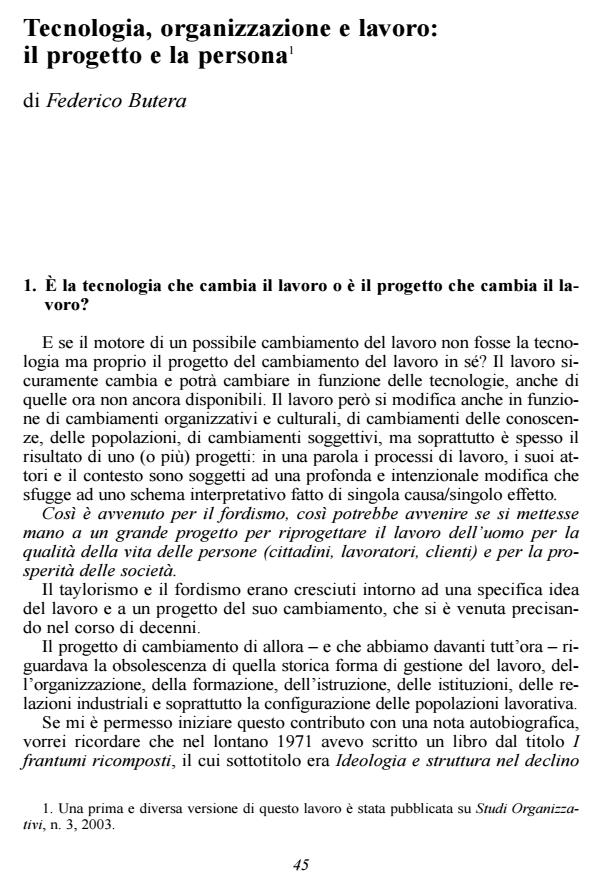Tecnologia, organizzazione e lavoro: il progetto e la persona
Titolo Rivista SOCIOLOGIA DEL LAVORO
Autori/Curatori Federico Butera
Anno di pubblicazione 2006 Fascicolo 2005/100 Lingua Italiano
Numero pagine 36 P. Dimensione file 111 KB
DOI
Il DOI è il codice a barre della proprietà intellettuale: per saperne di più
clicca qui
Qui sotto puoi vedere in anteprima la prima pagina di questo articolo.
Se questo articolo ti interessa, lo puoi acquistare (e scaricare in formato pdf) seguendo le facili indicazioni per acquistare il download credit. Acquista Download Credits per scaricare questo Articolo in formato PDF

FrancoAngeli è membro della Publishers International Linking Association, Inc (PILA)associazione indipendente e non profit per facilitare (attraverso i servizi tecnologici implementati da CrossRef.org) l’accesso degli studiosi ai contenuti digitali nelle pubblicazioni professionali e scientifiche
The true motor of the present changes in work contents and identities is not technology in itself but the continuous social process of redesigning organizations and jobs. Taylor-fordism in itself was not a consequence of technology but rather a major business innovation, that is an architectural platform for specific technological, organizational and social change. A new paradigm of socio-technical architecture takes decades to apply. This is why we do not know whether any post-fordism may be yet among us or is just going to come. The first point of the paper is that ICT do not convert real into virtual organizations and jobs but merely design and manage them on a remote basis, generating an unprecedented change in the TTT setting of the organizations (tecnology, time and territory). This foster global and local ommunication, cooperation, knowledge management and new forms of communities. The second point is this development of ICT process accelerates a trend begun in the 70s from mechanical toward organic organizations, from hierarchical castles toward network organizations, from standardized to individualized form of organizations, from narrow jobs toward knowledge based professions, and many others. The managerial rhetoric of the last 20 years misinterpreted those paradigmatic changes and wrongly announced the death of the organizations and the rise of confused notions as people, human side of enterprise, intangibles and the others. This paper is an open confrontation of current human resources theories, seemingly late ri-editions of Human Relations approaches of the 50ies.;
Federico Butera, Tecnologia, organizzazione e lavoro: il progetto e la persona in "SOCIOLOGIA DEL LAVORO " 100/2005, pp , DOI: